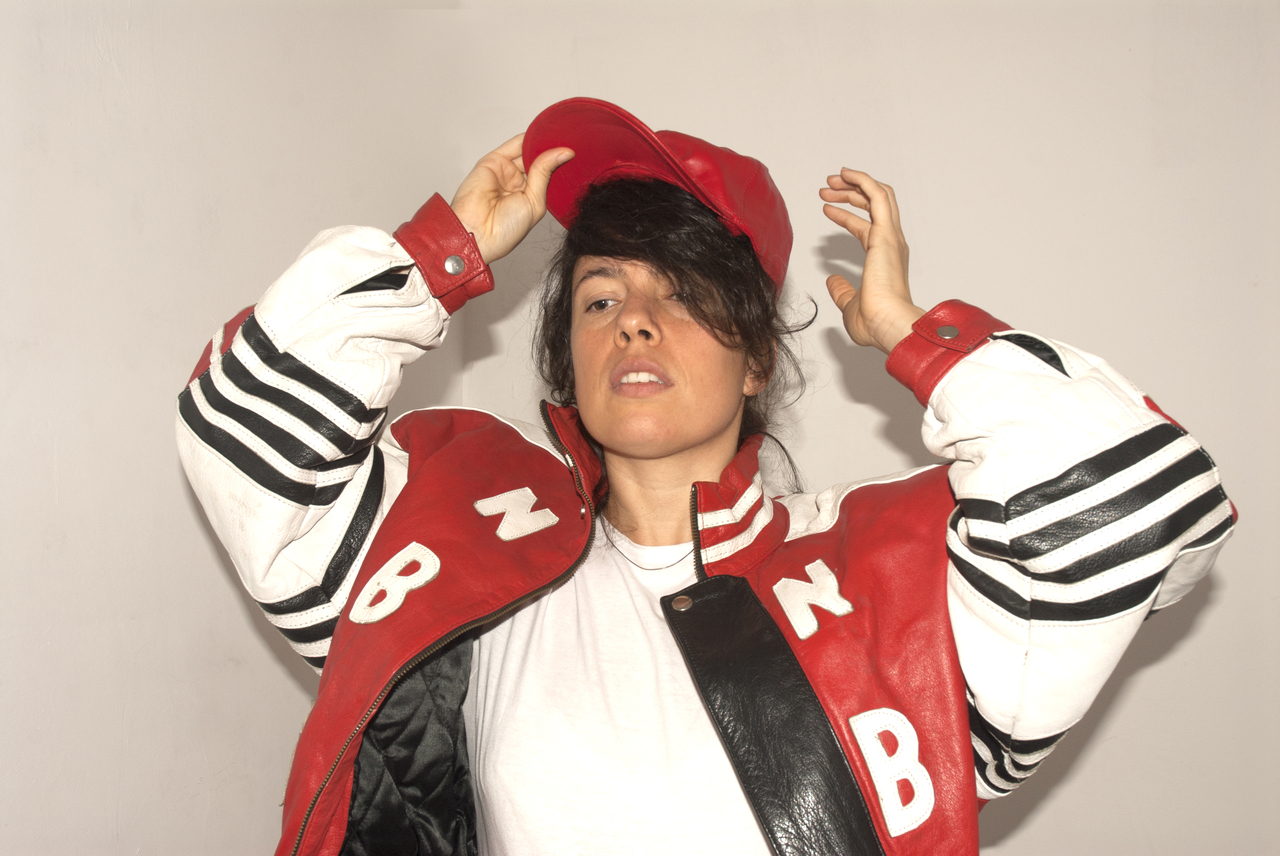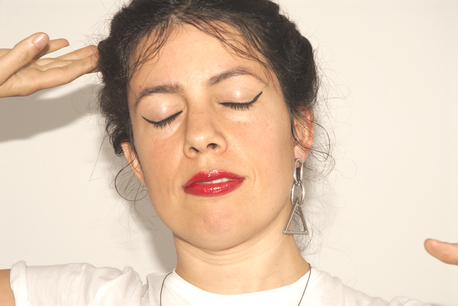Can you tell me more about the upcoming project N.Y.E.M. (Not Your Exotic Monkey)? Is it also part of your work at MACBA or is a side project you are elaborating?
The work at MACBA is related to the research,
N.Y.E.M. is one of many ways to take the research to live in material reality. It is both a DJ project and a segment inside the “Una valiente nueva radio”. I think I would like to propose it to MACBA as part of my project because it will take many shapes. The project itself is the research. But talking about the research is so abstract and I don’t want it to become just a text that it’s going to be read maybe with 4 cats in the world, with the academia and the institutional environment. I wanted to have this outcome and to be able to share it in a more organic way, because otherwise it’s a failure. It’s something written in a text that will stay in a library and that maybe one person will make a thesis out of it five years after! I hope this will not happen. I mean, on one hand the written research, integrated by a bibliography will find an outcome, but the one I find more honest would be to transform it into podcasts on radio, radio sessions and to generate spaces to discuss.
The radio will broadcast for the Venezuelan time-zone, live with video. We want to rescue some old but nice references figure we had in the 90’s MTV: VJ. Abraham invited to create their own shows to other Venezuelans, that in this moment are outside the country; on one hand to explore with another approach the sound of another place, beyond stereotypes and somehow, on the other mumbling that we are now migrating and living outside the country, and this is not casual.
Before we started elaborating this, talking about doing a radio program with my colleague from Caracas has been like: “but you know the situation that is happening here, Daniella, I don’t know if it’s like the moment to do a radio program, I don’t know if it’s good”. And I said “of course is good!”, “Yeah, but you know what’s going on here…”, “yeah but we can’t stop doing things because…we have to do it” “you think so?” “yes!” “but that doesn’t mean I am superficial?” “no!” you’re not superficial because you’re doing a web-radio… that by the way is called
Una Valiente Nueva Radio, a Brave New Radio, you have to be kidding me! So yeah, let’s do it.”
And actually this project came out since a year ago, when this friend started doing this radio and inviting me and saying like “I would like you like a guest and may other people who are outside Venezuela and you can talk about whatever you want to talk about”. And I was like, well, of course you know what I am gonna talk about! Maybe…about, I don’t know I wanna dedicate a whole single program to the group ESG, that is like a Bronx 3 sisters group that they grew up in the late 70s in the Bronx, and I heard their album like 10 years ago and that really… it was kind of weird to think that they didn’t have the recognition at the moment and a lot of hip hop players, of rappers started to sample their sounds, and they didn’t have the credits of that! And I am so pissed off, and then 10 years later they started to have this, like they emerged and they restarted to play and they have like this …as if there were our aunties touring around Europe, it’s amazing! So well, I’d like to dedicate just a program for them, for example. To somehow dedicate the space to explore more the relation between “peripherical” and “subaltern”, and the relationship they have with the underground scene.
And this would be your segment. How do you pronounce the acronym? Nayem?
I wanted to do it like En Why E Em.
Is this name referring to what you were saying before? To artists who do something they are not expected doing just because they come from somewhere, a kind of “in your face!”?
For me it started to become an automatic phrase that came into my mind every time I was asked to play music. Because it is attached to people I actually love, good friends and people who are very close to me. This happened a lot in the last 3-4 years in Italy, where people were like
“why don’t you play your music, it’s so beautiful”! And this is a positive thing but it started to create a situation that was kind of uncomfortable, because they were taking for granted that if you’re from there, it automatically means you can dance, even though they never saw you dancing. I don’t know, sometimes it was a bit weird and I was getting a bit fed up with it. I cannot be here playing the Macarena! It’s not what I want to do, I mean, I could do it, but when it starts to be something limiting me because I have to perform what you think I am, I get mad. And the last story I had with a guy, he was like, in that moment I didn’t understand if he liked me or if he was really deep into my music.
“Oh you play such an amazing music, so weird…but you should use a lot of colours!” Fuck it. You’re dressing me up as something! What is that supposed to mean? I know it’s coming with good intentions but it’s awful.
And I can give an example from when I was starting my career, with a visual arts master in Milan with the NABA. The context to this is that 9 years ago I felt that I was white! This is funny and sad. Why? I was from a nice family and I had access to culture, and I felt that I was white, and I never thought that I was different or that I didn’t have the privileges I had up until that moment. So when I moved from there… this is gonna sound so crazy but I felt myself like being a French girl! And even my haircut was sort of like that. And I was “ah I feel so European right now!” And that was such bullshit, but in my mind it was true. And when you start to hear from the outside “ah but you’re from Latin America, and…”. Well, let’s say specifically: the director of the visual arts of the NABA tells you “oh, you’re Venezuelan, you should do performance”. Well he didn’t say the rest of the phrase but, like, ok we have a tradition of performing, and Latin American women do performances, it’s like, you should try with that because it’s your tradition… what’s that supposed to mean? And I believed in it! That’s the failure! I started to believe “ah, I am supposed to do this, because they expect me to do this, because this is who they tell me I am”.
And it took me many years to realize that, ok, that’s the beginning of the colonial problem in my case – and I think it’s everywhere and we – and I say we referring to the colonies and the people that are from the colonies – we have this problem of internalized colonialism. It makes it even more terrible! But once you realize that this is it, and that there is a lot of work to do, but I prefer to know! Yeah, well, I think there is another side to this story, because for me it was the condition that let me realize what was really happening, and this is not what I thought, but I am gonna do something with this. This is what I am doing now. Let’s see how it goes.




